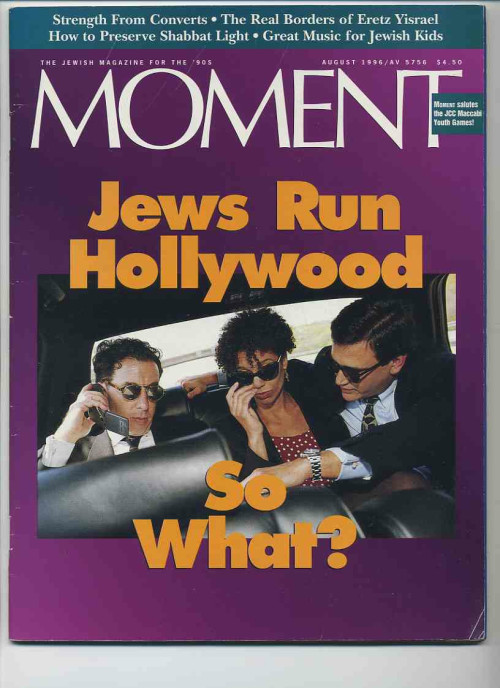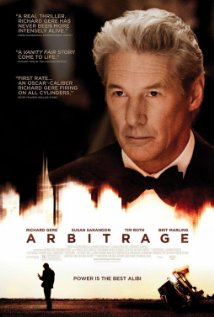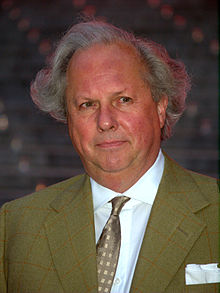How They (Continue to) Lie to Us — The Richard Gere Film “Arbitrage”

In a fairer world, I’d have won accolades for my analysis of Hollywood movies, including my current series that shows how consistently Hollywood conceals the facts about massive Jewish involvement in Wall Street finance — including immense malfeasance and endless instances of shady practices. Not only does Hollywood conceal these facts, it then projects them onto innocent, often Nordic looking Whites. Consistently.
Let me explain further by making a very bold claim: Leonardo DiCaprio, John Travolta, Brad Pitt, Richard Gere, Susan Sarandon, Tim Roth, Jeremy Irons, Kevin Spacey, Danny DeVito and Gregory Peck are all involved in a tight-knit conspiracy to utterly whitewash an ongoing theft of wealth, one transferring mind-boggling amounts of money to Jews.
Of course, this should be no surprise, really. Anyone paying even the slightest bit of attention to Jews and money over the last, oh, thousand years would actually expect this sort of thing. And why be shocked that Jews have tried to hide this conduct?
I’ve shown this pattern in the modern world repeatedly, and, as mentioned, have closely covered Hollywood’s role in the whole thing. In Oliver Stone’s 1987 Wall Street, for example, director Stone was at pains not to portray any leading Jewish characters, despite the fact that the 1980s were famous for the rise of Jewish financiers on both sides of legality — Boesky, Milken et al.
We next move to the 1991 film Other People’s Money (my review is here) featuring Danny DeVito as the peripatetic Wall Street takeover artist Lawrence Garfield. As I showed, the movie is fully cleansed of Jewish identity, instead giving us the diminutive Italian American DeVito pitted against the more WASP figure played by Gregory Peck. Next, consider the 2009 remake of The Taking of Pelham 123 (my review — scroll down), starring John Travolta as a Catholic Wall Street mastermind who spent time in prison for fraud, then hijacks the eponymous subway train in a gambit to extort huge sums of money.
Two years later, we find J.C. Chandor’s 2011 film Margin Call, which tells a story that loosely mirrors the fall of Wall Street giant Lehman Brothers. Despite being a well-known Jewish investment firm, the film perfectly conceals Jewish identity, giving us instead actors like Jeremy Irons and Kevin Spacey. I showed in detail how this was done.
Finally, over a year ago, I highlighted what must be the most egregious example of deceit when it comes to Hollywood’s lying about Jews and money: the book vs. the movie The Wolf of Wall Street (my review). I demonstrated, I believe conclusively, that while Jordan Belfort’s bestseller The Wolf of Wall Street was 100% open — obvious, insistent, emphatic — about Belfort’s Jewish identity as well as that of most of the other characters, the movie starring arch-goy Leonardo DiCaprio barely revealed anything Jewish at all.
This striking pattern of deceit encouraged me to look for other examples of this trend, and I was richly rewarded when I found the 2012 film Arbitrage, featuring box office star Richard Gere, as well as Susan Sarandon and Tim Roth in lesser roles. As in the other Wall Street films just mentioned, the mission of Arbitrage is to mask Jewish involvement and project the blame onto non-Jews. It really is breathtaking.

The film’s opening solidly sets up the identity of Robert Miller (Gere) and his clan as thoroughly White and Christian. In an interview, millionaire Miller attributes his innate pessimism about events to his parents, who had grown up with the Depression, Pearl Harbor and The Bomb. His everyman Christian American background is confirmed by notice that his father was a welder in the Navy and his mother worked for the Veteran’s Administration.
Soon after, he returns home to a surprise birthday party, where he is surrounded by a large extended family. His wife, played by Sarandon, is clearly European America, as is his daughter Brooke and each and every child running about the room. There is not one hint that Miller, his family, or anything in his home could be anything other than Gentile American.
Obviously, this in and of itself is hardly a bad thing. But when we then see how the film unfolds, how self-serving and immoral Miller is, his ethnic background becomes complicit as well.
Not surprisingly, given his wealth and status, Miller has a mistress, an exotic European woman with ambitions in the world of art. More on this soon. (Also, I should add that this review is full of spoilers.)
Eleven minutes into the film, we have a pointed financial dispute. Miller, a successful hedge fund manager, wants to get out of the business by selling his company. Unfortunately, he has committed serious fraud and covers that by borrowing $412 million from a close associate, “Jeffrey.” Miller is ushered into Jeffrey’s office by a very Nordic female office assistant with straight blonde hair who appears to approach six feet in height.

Larry Pine
Jeffrey’s office is every bit what one might expect from the Northeast WASP elite — dark, tasteful colors, leather upholstery, a large natural scenery painting on the wall. Interestingly, the Internet Movie Data Base provides the surname Greenberg for Jeffrey, but that is meaningless given that he is played by the non-Jewish-looking Larry Pine and the name appears nowhere in his office. No one is going to mistake Jeffrey or his setting for Jewish.
Next, we see that Miller plans to meet the prospective buyer of his firm, the elusive and frumpy James “Jim” Mayfield, who turns out to be as WASPish as his name. Mayfield is played by Canadian journalist Edward Graydon Carter, who since 1992 has been editor of Vanity Fair.

Edward Graydon Carter
Now that the thoroughly non-Jewish WASPy identity of the film’s characters has been described, I’ll move to some of the defamation of Whites through Miller’s behavior. I’ve already mentioned Miller’s financial skullduggery, which is a constant throughout the film.
Where the script really tries to defame the White race, however, comes in the death of Miller’s lover Julie, played by Laetitia Casta:

That Miller has a mistress hardly raises censure in today’s Hollywood, so the script ups the ante. An exhausted Miller relaxes at Julie’s apartment, sipping liquor. Then, the two head off on a leisurely late-night drive in Central Park. Predictably, Miller nods off. Less predictably, his Mercedes crashes and bursts into flames, with the trapped Julie unconscious (and possibly already dead) in the passenger seat.
What kind of moral fiber does Miller possess? Well, it is the consistency of mush, and self-preservation gets the best of him. Putting to work his considerable ability to make deals, he summons that magic before the wreck has even cooled: he’s going to frame a black man for the accident, let him go to prison, and of course pay him well for his lost years. Thus, he calls young Jimmy Grant from Harlem. Jimmy’s father had been Miller’s driver, which is why Miller knows Jimmy and has his phone number.
Not surprisingly, young African American Jimmy is honorable and does not tell Detective Bryer (Tim Roth) the truth about the accident, despite the fact that Bryer brings considerable pressure to bear. (As it turns out, Bryer sabotages his own case by planting evidence, and Jimmy goes free.)
The film revolves around these twin tensions — financial fraud totaling nearly half a billion dollars and the likelihood that Detective Bryer will nail Miller. Ultimately, the film ends on a completely cynical note, which, to be honest, made the film as film successful. Miller beats the rap, gets his loan covered, and continues on as a Master of the Universe in New York City’s financial district.
The racial politics of the film, on the other hand, are a different matter if one is concerned about the sullying of the White reputation (not to mention the blackout of Jewish identity in Wall Street scandals). The finale of the film — the cynical part just mentioned — lays on thick the following message: Gentiles are thoroughly corrupt when it comes to money. In the last fifteen minutes, we see how Miller is able to deviously escape suspicions that he had a hand in the fiery death of his mistress (which of course he caused).
Next, Miller’s wife (Sarandon) has connected the dots and figured out how guilty her husband is. Crushed by his infidelity and the suffering he has put their daughter Brooke through, she responds — by coldly blackmailing him. Either he coughs up a significant sum of money for her favorite charity, or she divorces him and walks away with perhaps far more.
Next, we cut to a scene with the man who bought Miller’s firm, James Mayfield (who may as well have been named James Mayflower, given his mien and surroundings), who is shown riding in his limousine to the “Benefit Gala in honor of the Miller Oncology Center.” Riding with him is an assistant who hands him the results of a confidential investigation which concludes, “We have reviewed the records submitted and have found no way to legitimately substantiate a capital transfer of $412 million dollars.”
“I think, I think I don’t see anything wrong here,” Mayfield replies. The two men then exit the limo and ascend the stairs to the goyish gala. The entire affair is sheer goy hypocrisy. The money for the new center is tarnished, and everyone in attendance pretends that everything is honorable. Miller is all smiles, his wife smiles, even his disillusioned daughter goes along, cynically but without conviction going along with honoring her father: “A dedicated businessman, a family man, a philanthropist, and an all-around humanitarian. A man I am very lucky to call my mentor, my friend, and my father.” The message: behind America’s most sterling institutions and leaders lie deceit and insincerity — Gentile deceit and insincerity.
Oh, this is just too rich. This is straight out of Philip Roth’s Portnoy’s Complaint, where Roth shows Jewish hostility toward the broader White culture, particularly that embodied by White men. In a passage mocking the rise and fall of Columbia University instructor Charles Van Doren, Roth inserts a scene that portrays this naked anti-White sensibility:
I was on the staff of the House subcommittee investigating the television scandals. . . . and then of course that extra bonus, Charlatan Van Doren. Such character, such brains and breeding . . . And turns out he’s a fake. Well, what do you know about that, Gentile America? Supergoy, a gonif! Steals money. Covets money. Wants money, will do anything for it. Goodness gracious me, almost as bad as Jews — you sanctimonious WASPs!
In contrast, of course, we have one minor Jewish role, that of lawyer Syd Felder. Miller calls him after the death of his mistress, and Felder’s first reaction is the moral one: Do what is right and turn yourself in. (Felder is played by Jewish actor Stuart Margolin.)
So there it is, another big-name film peddling the same message about who is and isn’t responsible for elite financial fraud. It’s of a piece with the other films I’ve already mentioned. This time, however, we get even more evidence of how deliberate the lying is, for in the Special Features section we find an interview with script writer and director Nicholas Jarecki; this film is his baby.
Jarecki’s father is certainly Jewish, though I couldn’t find the racial identity of his mother, Marjorie Heidsieck. Both of his parents, however, were involved in high-level finance, so they must have given him first-hand information on what really happens. And some information it must have been, for his father Henry, according to Wiki, “served as a director of the Futures Industry Association, the National Futures Association, COMEX, the Chicago Board of Trade, and the Chicago Metals board of trade, and was an adviser to the Commodity Futures Trading Commission in the years following its establishment.” His mother is a former commodities trader.
Obviously, then, Nicholas Jarecki is lying about the ethnic identities of so many financial fraudsters in modern times. One of the producers, Kevin Turen, is also lying at one level, when he says in a Special Features interview, “I know you’re not going to get a more authentic film about Wall Street than this film.” In a sense, however, he may be right, since there are no authentic movies about Jews and Wall Street. If there were, even some of the goyim might catch on.
To wrap things up, I’ll again state the obvious, beginning with a quote about Jews from TOO’s own Tobias Langdon: “Why do members of this tiny minority so often appear in scandals about the abuse of power? Anyone who asks this question immediately removes himself from respectable society. The patterns are obvious, but cannot be discussed.”
From the Far Left, we get testimony from a different perspective, this time from Professor James Petras, who fumes:
Prominent among Netanyahu’s financial backers are a group of prominent Zionist lumpen bourgeoisie, billionaires who lent to millions of borrowers at extortionate rates (between 1400 and 4000% ) and played a leading role in the fraudulent mortgage induced crises of 2009-forward. They include Al Goldstein co-founder of AvantCredit and CashNetUSA; Sasha Orloff and Jacob Rosenberg founders of Lendup; Daniel Gilbert founder of QuickenLoans- a predator subprime lender; Ronald Arnall owner of Ameriquest….. .They used part of their ill-gotten gains to ease their consciences by donating millions to Israeli and US jewish causes. Being generous to Israel provides a sort of perverse “forgiveness” for screwing millions of Americans.
Likely few TOO readers need to read this, but I’ll share what former Counter-Currents writer Andrew Hamilton penned recently about hedge fund managers:
More often than not the privileged Jews turn around and use the vast wealth they’ve skimmed from the productive sector of the economy to advance anti-White, pro-Jewish, and Left-wing causes, thereby harming America and the world in two ways — economically through callous and shortsighted market operations, and politically through their “philanthropy” and lavish political donations. George Soros has done enormous harm to Whites worldwide in this manner. . . .
Hamilton specifically notes the shocking wealth concentrated in such hands, referring to Forbes Magazine’s recent ranking of the richest hedge fund managers in the United States by estimated personal net worth: “Twenty-four of the 32 names on the list (75%) are Jewish. Of the 10 wealthiest, 8 (80%) are Jewish.” He further adds that “Despite their social and economic power and privilege the names of hedge fund managers are virtually unknown even to educated and informed people, never mind the general public.”
In good part, we can thank Hollywood for this.
Is there anything good that can be said about Arbitrage? Actually, there is. Because Gere possesses such charm on camera, his Miller character never comes off as anything near an evil man. Rather, in his most strained moments, he is a man conflicted by competing interests. This is not evil incarnate.
In one scene involving his daughter, for example, after she has discovered the true nature of his business dealings, Brooke turns a cold shoulder to her father. Attempting to justify himself, he walks with her to a bucolic setting in Central Park, an appropriate setting for two American White people. In a short speech perhaps meant to show his true inner core, he praises the wonders of his company: “It’s fucking minting money! It is a license to print money . . . It is GOD!”
The funny thing is, Gere’s Miller is totally unconvincing while saying this. In fact, I expected both him and his daughter to break out into laughter at any point. These people simply do NOT worship money as God.
Still, Gere’s charm is not enough to counter the more pervasive message of the film that elite non-Jewish White people are corrupt when it comes to money, nor does it do anything to address the deceit that Jews are NOT far more likely to be involved in elite financial fraud than non-Jews. Further, when considered within the broader Hollywood effort that has created a series of high-profile films casting A-list Hollywood White stars as the baddies in films about financial swindles, the charm of a Richard Gere counts for little.
Dear Reader, rest assured, there is more to come. Some of you are perhaps familiar with Michael Lewis’s 2010 book The Big Short: Inside the Doomsday Machine on the financial meltdown of 2008. Well, Hollywood has just released the movie version of the book, and it has been nominated as for Best Picture at the Oscars. From all indications, it is another complete whitewash of Jewish identity. I have yet to see it, but others have told me that there is no whiff of the likes of Lloyd Blankfein of Goldman Sachs, Maurice “Hank” Greenberg of AIG, Robert Rubin & Sandy Weill of Citigroup, Dick Fuld of bankrupt Lehman Brothers or Alan Schwartz of the failed Bear Sterns. Where do The Fed or The SEC and Jews cross paths? Apparently, you won’t find out where in The Big Short.
What you will find is that some of the most Aryan-looking male actors in contemporary Hollywood are playing roles that more accurately go to Jews. There is Ryan Gosling, Christian Bale (nice touch with the given name), Steve Carell and, for maximum impact, Brad Pitt. I’ll need to wait for the DVD to come out to carefully parse the film, so please be patient while you wait for my review. If you’d like, you can go to Wiki to find out what unpleasant business these Hollywood characters have been up to. And from what I’ve heard, “the hero of the film and absolute pillar of moral integrity is none other than Jewish hedge fund manager, Steve Eisman, the only Jew mentioned in the film.”
Sounds like a pattern to me.
So, does it matter that Jews run Hollywood? Of course it does. I’m in total agreement with what our editor Kevin MacDonald concluded: “It matters a lot that Jews Run Hollywood.” Concealing Jewish identity when it could hurt Jews but help Gentiles is just one facet of how control of the medium of film puts Whites at a severe disadvantage. And you can take that conclusion to the bank.





Comments are closed.